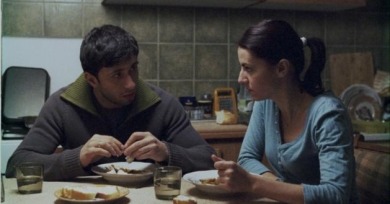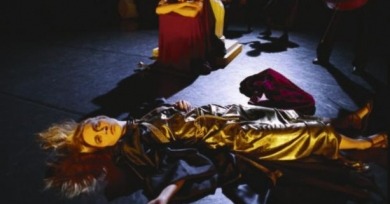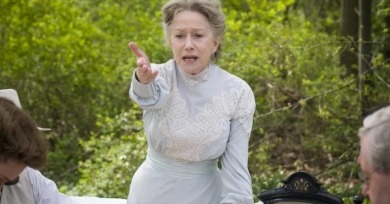Reviews
First-time director Na Hong-jin’s solid command of thriller/policier basics results in a comforting ride—thrills, humor and scares are well-parceled, characters develop, cheesy Eighties synth washes abound, the police are all morons, and he’s even managed to breathe some life back into the stolid foot chase (twice!).
If to be human is to err, then the Sherlock Holmes of Guy Ritchie’s bumbling, limply cartoonish updating of Sir Arthur Conan Doyle’s classic literary ingénue, played by Robert Downey Jr., is not human. An audience seeks to identify with a protagonist by sharing in his or her mistakes. What’s missing in Sherlock Holmes, and in Holmes himself, is the element of human struggle.
Despite his genre play, Haneke doesn’t care about isolated crimes or mysteries. Personal guilt is (here literally) child’s play. The big culprit, as usual, is the monster called society.
Those of us who grew up wearing our allegiance to his earlier work proudly won’t be pleased to note that Gilliam-esque now seems little more than a fraying bag of tired tricks.
Less is more in the sophomore feature by Cannes Camera d’or winner Corneliu Porumboiu (12:08 East of Bucharest), a filmmaker attentive, like his fellow under-40 countrymen Cristi Puiu and Cristian Mungiu, to the ironies of bureaucracy in post-totalitarian Romania.
Up in the Air wants to tell us a lot about America. About our priorities, our lost dreams, our pasts and futures, our blind spots, and, as any award-hungry movie does, it wants to diagnose how We live now.
We know from the serenade at the beginning of Starman that Bridges can sing and pick a guitar. But more than that, Bridges’s bluesy delivery (more Leonard Cohen and Tom Petty than Waylon Jennings) is truer to the contemporary sound of the progressive country singers who survived the seventies.
Nine opens with the insistent clang of a chime, like the shudder of a church bell. Listen closely, as it’s the death knell for the movie musical.
Ricky is metaphorically sound (talk about empty nest syndrome), but occasionally it’s more than a little clunky: during Ricky’s awkward flights, the poor kid just hangs in his invisible harness and strings—there’s no motion or elegance to his movements.
The joy of watching A Town Called Panic lies in its uncanny evocation of adolescent invention. It’s an overturned toy box of a movie, complete with mismatched action figures, improvisatory effects, and stream-of-consciousness storytelling.
Most of the time, Hoffman depicts Tolstoy as a doddering, grandfatherly old genius; his accomplishments and inner turmoil are alluded to, discussed, and debated by others, but never given dramatic expression.
The almost mathematical control and precision of Firth’s lachrymal glands points to what proves to be most problematic about A Single Man.
It’s a thudding, impersonal work. Eastwood is infinitely better at the micro level, constructing narratives out of intimate situations, in which characters relate to one another in constricted settings.













